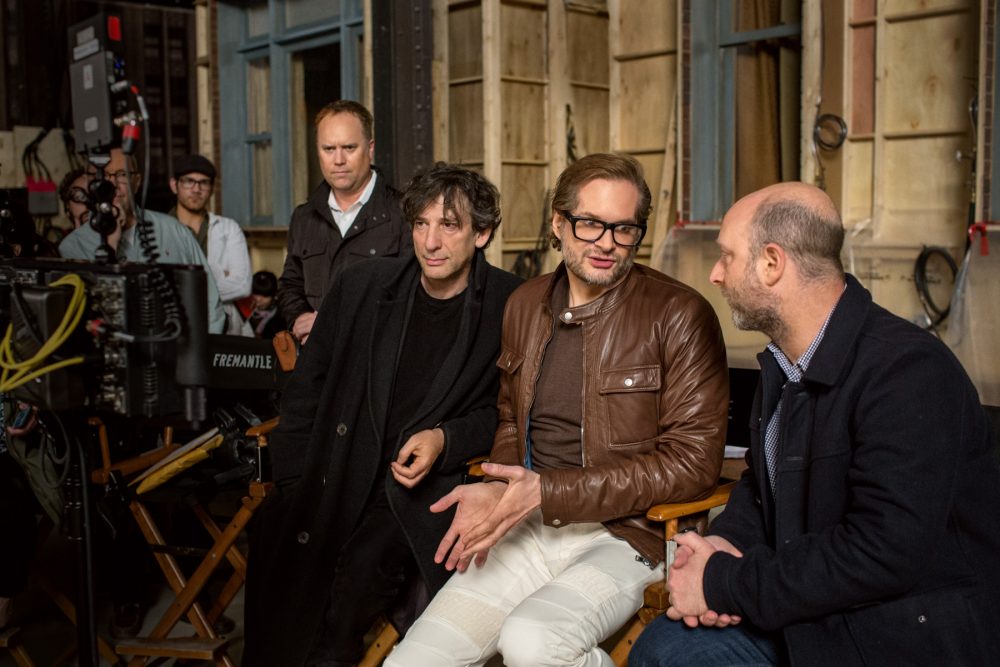
Much like Gaiman’s novel, the Starz adaptation of American Gods is defined by its sense of wanderlust. The plot focuses around what happens when old gods like Anubis and the Queen of Sheba, brought over to America by immigrants, come into conflict with new gods like Media and Technical Boy who define the ways modern Americans use their time. However, rather than constantly focus on the battle between the old and the new, American Gods continually deviates from its central conflict by working in vignettes about different aspects of the American experience. In our review, we indicated that American Gods’ tendency to go for thematic breadth rather than focused depth often leaves the show feeling rudderless in the moment. Taken as a whole though, American Gods is perhaps one of the most fully realized depictions of American society in 2017. It is a story about a culture in flux trying to reconcile what it is with the multitude of often contradictory things that it wants to be.
When Gaiman originally wrote American Gods, he told Comics Beat that he considered it to be “relatively non-contentious.” He considered the central ideas of the book—that it is a “good thing” that America “is a country of immigrants” and that there are many cultures and races in America that deserve to represented— to be “fundamentally self-evident and simple. Had you told me, twenty years ago, that simply describing American Gods as an immigration positive, racially diverse television story in an interview” would have led to “cries to boycott the series…I would have not understood what you were talking about.” Actor Ian McShane, who plays Wednesday on the show, attempted to explain the source of these cries by stating that “America is a very sentimental country, but not a very sensitive one.”
Showrunner Bryan Fuller said that when they started filming American Gods, they did not “have an inflammatory agenda.” However, in the process of creating a show that is, at its core, about “American culture and immigration…[we] couldn’t help but steer into those issues…it was natural to the story.” Fuller then specifically commented on a highly controversial lynching scene that appears early into the show’s run and represents an element of a “black person’s experience in America.” He called himself and fellow American Gods showrunner Michael Green out for being “two white guys” who some might argue “have no business telling that story because [they] don’t understand that perspective.” However, they felt compelled to explore the theme because it was so “integral” to Gaiman’s original text. Moreover, they’re “prepared to have a conversation” about it.
Following up, Fuller said that the intent behind the scene was to demonstrate that “racism is alive and well and that if someone is upset about a fictional lynching, they should dig deeper into the actual lynchings that are happening in America with young black Muslim men…if it upsets anybody, I think, good, it should be upsetting. Be upset and do something about it.”
Orlando Jones, who plays the Ghanaian spirit of stories, Mr. Nancy, furthered the discussion on race in American Gods. He focused on his explosive entrance to the series which sees his character prophesying the fraught future that awaits a group of slaves on a ship bound for America. Jones seized upon a unique element of many black Americans’ immigrant stories—the fact that they weren’t immigrants at all, but rather “captives.” He said that “we talk about immigrant culture in the United States but we don’t talk about the fact that there’s a huge population in the United States whose story isn’t as noble as that and because of that we act like those stories have no nobility within them. We treat these people as though they “are somehow subhuman.”
According to Jones, examining the stories of marginalized people on American Gods provides “an interesting way to look into the diaspora of a country.” He continued by saying that he hopes the show can provide a voice to segments of American society who have been marginalized and have been spoken for by more privileged creators who don’t understand the nature of their experiences. Both Jones and Crispin Glover, who plays Mr. World, agree that American Gods is a show that they “guarantee” people will “get upset about.”
One scene in particular that’s likely to cause a firestorm when it airs focuses on the gay romance between a Muslim salesman named Salim and a mystical Jinn. Gaiman, who was “very proud” when he originally wrote that particular “Coming to America” vignette for the American Gods novel, never expected to see the scene make it to the screen because of the way the story couples two particularly persecuted groups in American society. He was pleasantly surprised to see it and said that that was the moment when the adaptation truly came to life for him. Indeed, Jones was also exhilarated by the scene’s inclusion. Among all the romantic pairings on the show, he “shipped” Salim and the Jinn the most because of how ultimately human and universal their experience is in spite of the cultural judgment surrounding its specificity.
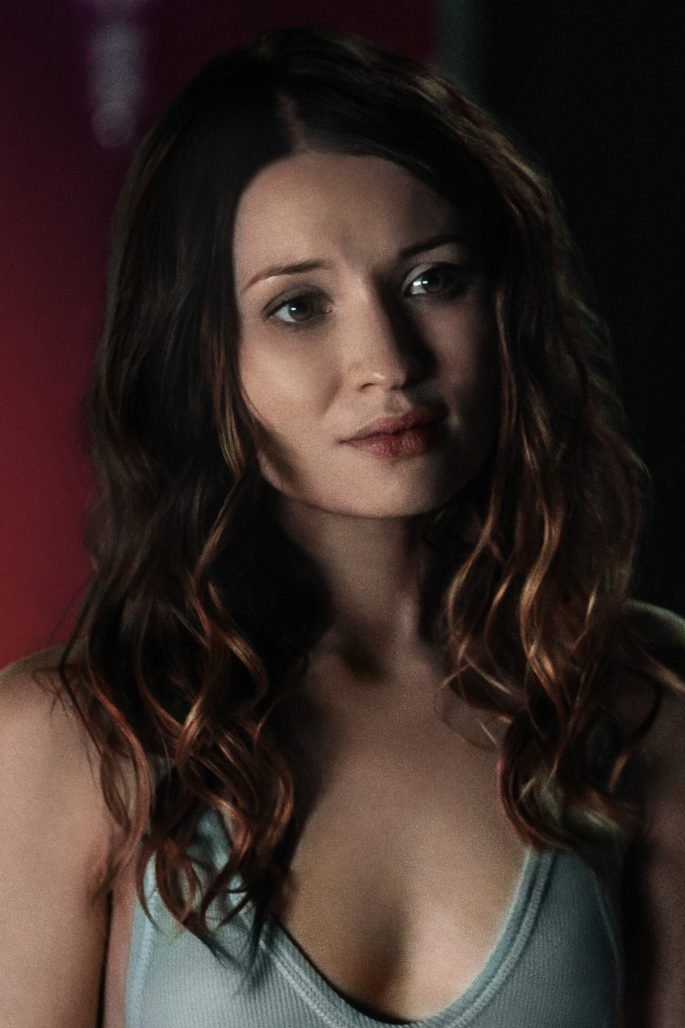
Yetide Badaki, who plays the biblical Bilquis, a figure of love, has also seen her role greatly expanded for the American Gods TV adaptation as well. She spoke against potential critics of the show who might take issue with its sexually overt nature, stating that she doesn’t see the way her characters’ and others’ sexualities are portrayed as exploitative. She sees her character’s sexual experiences as one of an “individual looking for connection.”
Indeed, her newly expanded role was created to provide a vulnerable and powerful commentary about the nature of intimacy in modern America. Badaki described Bilquis as “anemic because intimacy is something that is not pursued as much…it’s almost something people are afraid of.” Moreover, she said, when you combine a character that represents intimacy with a woman who can “own sex…that’s just people running for the hills, freaking out.” In preparing for the role, Badaki was forced to examine her relationship with intimacy in a way that she hadn’t before and was “overjoyed at how empowering” the experience was.
Addressing the elephant in the room, actress Kristin Chenoweth, who plays the pagan goddess of spring, Easter, discussed the way religion is depicted in American Gods. Her character in particular is controversial because she represents a less culturally accepted version of a holiday that has generally been associated with Christianity and Jesus in modern America. Chenoweth, who is Christian herself, acknowledged that she may have chosen to participate in a show that will prove heavily controversial to members of her own faith. However, she said that “at a time when Christianity is looked at as judgmental [and] non-acceptant [sic]…we should be more like Jesus” in accepting those who are unlike ourselves. She liked that the show sparked questions about difficult topics such as faith because “that’s what we’re supposed to do”: question and have discussions about our differences rather than “judging” others.
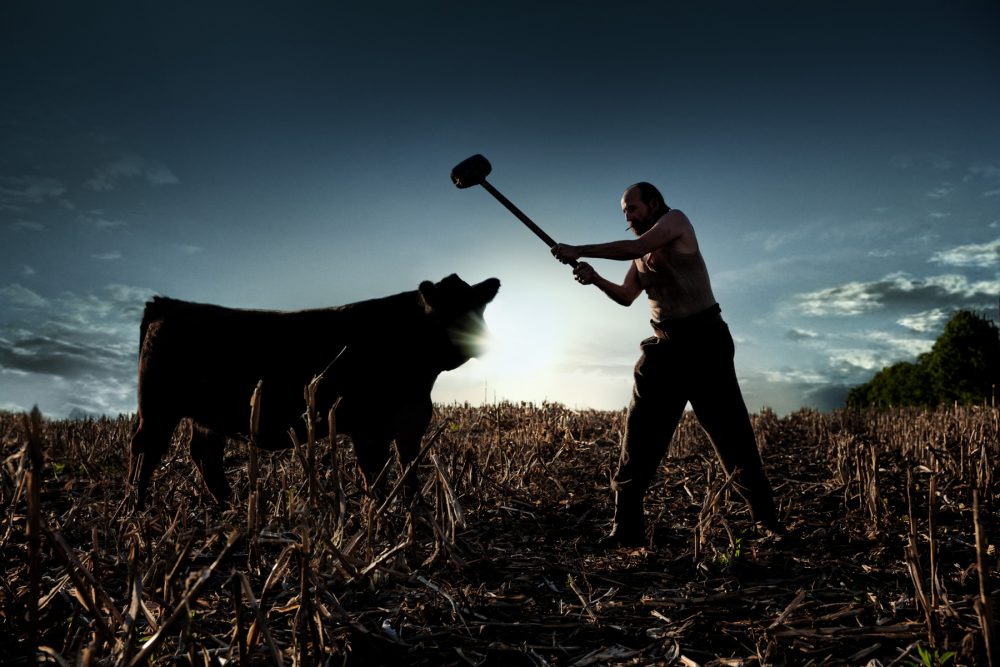
And speaking of the future, while it is currently unconfirmed (but rumored) that American Gods will be renewed for a second season, the crew are already planning for a long journey. Green said that he and Fuller often excitedly talk about the “new gods we can introduce.” Gaiman said that he had been talking to the showrunners about what happens after the book ends “since before [they] started” adapting the book for TV. The writer has not started working on the American Gods 2 novel yet, but he did tell Fuller and Green certain plot points he planned to use and hinted that those points have been incorporated into Starz’ American Gods as throwaway imagery or lines of dialogue meant to foreshadow the future of the series.
While American Gods may not be a perfect show, it may be the perfect show for this moment. It presents a compassionate picture of America’s past and present without casting judgment upon it. Instead, it shines a light on parts of western society that have historically been ignored or conversely, demonized by society. It doesn’t ask us to agree on anything, but it does encourage us to come to the table to have a conversation. And that’s a huge start.
American Gods begins airing on Starz on April 30th.


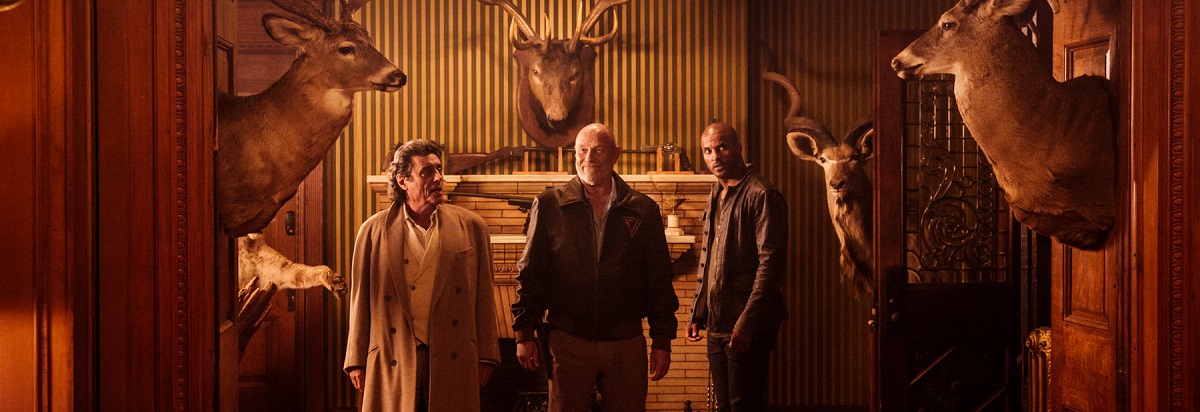
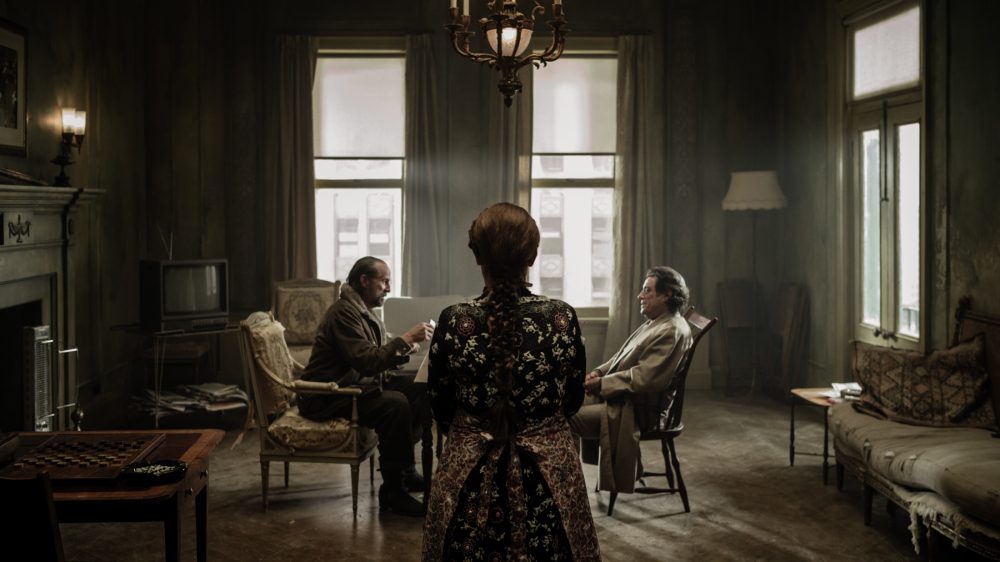
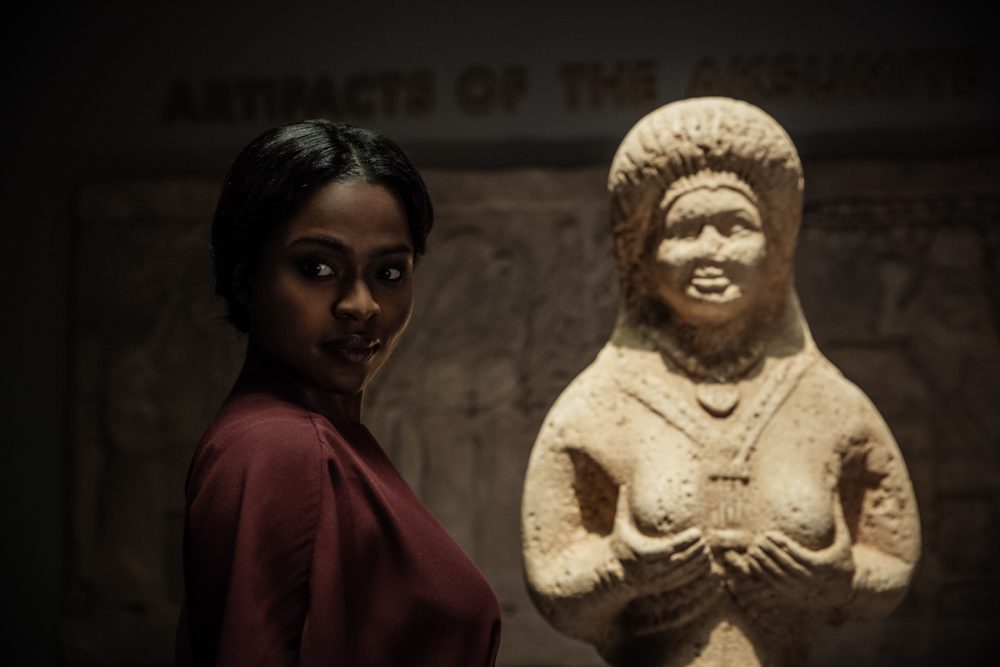
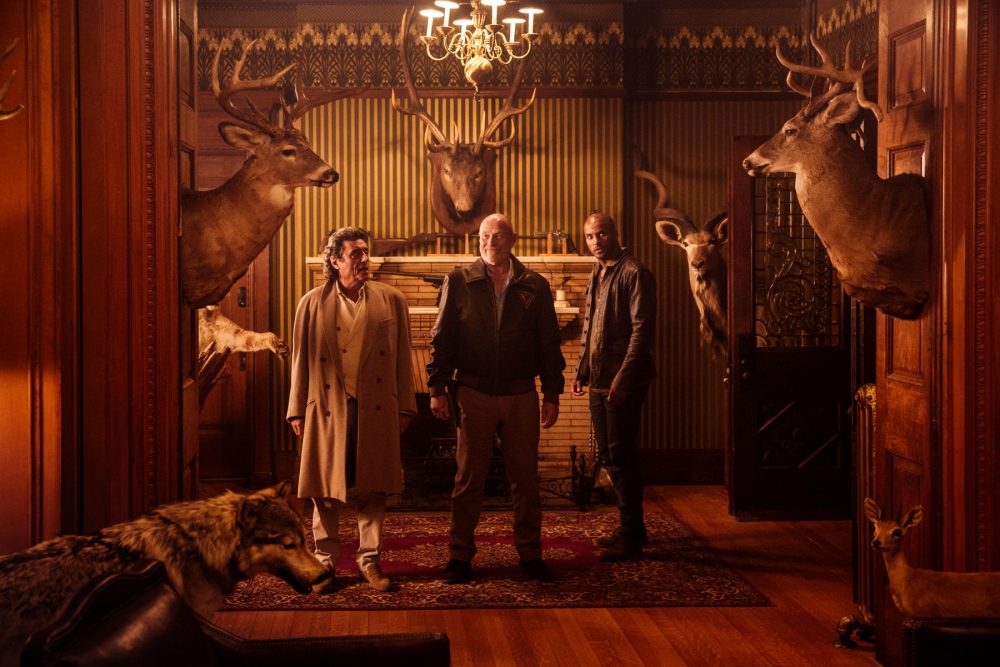





well this was a better write up than others i have read. the other reviews said it was a meandering purposeless semi-coherent mess of a show.
Comments are closed.